The Future our Past Creates
This interview appeared in the April 2nd, 2020 edition of the Anchorage Press and the Summer 2020 edition of Forum Magazine. The Future our Past Creates features Alaskan author, Don Rearden, as we explore insights from his novel, The Raven’s Gift. With Covid-19 at the forefront, Rearden’s novel is all the more relevant, a story about a devastating pandemic that sweeps through western Alaska, but it’s also an essay on human vulnerability, the ongoing epidemic of social dysfunction that plagues Alaska, and a cautionary tale of what can happen when an outbreak occurs in remote places.
“After several MONTHS he ventured outside the school for the first time. He’d spent days watching and listening for any sounds. Everyone in the village was either hiding out, had fled, or were, like so many others, dead.”
This passage comes early in The Raven’s Gift, a novel written by Alaskan author, Don Rearden, about southwestern Alaska in the grip of a deadly pandemic. Told through the eyes of John Morgan, a school teacher and newcomer to Alaska, the story is as much about a rampant virus as it is an essay on Alaska’s troubled history, its endangered culture, and a statement about greater America and its seeming indifference to the perils of life without a rich culture or deeply rooted traditions.
“He didn’t go far,” Rearden tells us. “Just out to get his bearings, get some air, and see if things were as bad as they looked from his peephole above the village”
“They were worse,” Morgan discovers.
The naive educator suddenly comes to terms with the realization that he’s completely cut off from the outside world, especially where he came from in the Lower 48. Even more dire, he realizes he’s been betrayed by his own sense of independence, learned in a world full of amenities and abundant food. Our protagonist feels the kind of gravity that few people ever experience: isolation in the middle of a vast landscape, dominated by tundra that’s not easily traveled, far from the conveniences and safety of urban living. John Morgan arrives as a foreigner in a place where the burden of subsistence is constant, even under the best of circumstances, but after the virus begins sweeping through villages we see him experience the worst circumstances imaginable. Most everyone around him is either dead or dying.
“Before the sickness,” writes Rearden, “the weathered plywood houses stood without paint.”
“Beside the houses rested the rusted carcasses of boat motors and old red three wheelers and four wheelers with flat tires, white five gallon buckets, shredded blue tarps that covered sheds and flapped in the wind. Even then everything possessed a worn appearance, as if the hand of god brushed and burnished each item in just the right spots so that outsiders would know the irrelevance of time in such an ancient land.”
Rearden knows this ancient land well, having spent the first twenty plus years of his life out on the tundra, with four of those years teaching at the same high school in Bethel where he graduated. Now a professor at UAA in Anchorage, and Chair of the Department of Writing, Rearden is a student of Alaskan history and cultures, having immersed himself in the study of early diseases that plagued native Alaskans, resulting in the decimation of many communities.
With Covid-19 at the forefront, The Raven’s Gift is all the more relevant, as much about human vulnerability as it is a cautionary tale of what can happen, especially to people who live in isolated places like Alaska, where a single outsider can cause a chain reaction, leading to the infection of hundreds if not thousands of people, many of whom have limited access to advanced health care.
“With Covid-19 at the forefront, The Raven’s Gift is all the more relevant, as much about human vulnerability as it is a cautionary tale of what can happen, especially to people who live in isolated places like Alaska.”
On March 18 of this year the Anchorage Daily News featured an opinion piece by Alaska’s Chief Medical Officer, Dr. Anne Zink; in The Time to Act is Now, she wrote:
As reports of an illness began spreading across the United States, reactions were mixed. One city took it seriously, closing the schools, isolating the ill, advising citizens to “socially distance” themselves and wash their hands frequently. Another city, against the advice of health officials, held a large parade.
Within days, many in the city where the parade had been held became ill. Within six months, 16,000 people in that city — Philadelphia — had died. In St. Louis, however, where strict health measures were enacted within days of the first reported illnesses, only a fraction of that number died. History buffs will recognize this story from the 1918 flu epidemic that killed more than 675,000 Americans. Between 20 million and 50 million people died worldwide.
As effective as Dr. Zink’s example is, I continued reading her article with some anticipation that she would go one step further and mention the early epidemics in Alaska, especially in light of the fact that the threat we now face is magnified in our rural areas, where residents may seem protected by their isolation, but are actually much more vulnerable because of it. But she didn’t mention Alaska’s dark history. As an important caveat, none of this is intended as a criticism of Dr. Zink, as her leaving out Alaska’s history tends to be the rule, and not the exception. I have seen every news conference when she was present, and the truth is I’m genuinely thankful for her service to us Alaskans. I also believe that without her we would be facing even greater danger. All that said, while I took her opinion piece very seriously, it also ignited my curiosity about the way we deal with our unique history.
So I recently revisited The Ravens Gift, seeing it as somewhat prophetic, not just of our current situation, but also a prediction of what is possible in the future, after we put the current virus behind us. The complexity of viruses and their possible vectors only seem to be increasing, transmitted not just through bodily fluids or the respiratory system, but also spread by ignorance and even arrogance.
I reached out to The Raven’s Gift author, Don Rearden, seeking his insights, not just those he collected for his novel, but also on the unique realities we face in Alaska.
Alaskan author, Don Rearden, photographed in Anchorage.
Joe Yelverton: What inspired you to write a book about a devastating pandemic?
Don Rearden: I wrote The Raven’s Gift partly out of anger for the loss of so many of my close friends, classmates, and former students to what is essentially an epidemic of death by suicide and substance abuse. Suicide alone has taken the lives of over forty to fifty people I knew on a first name basis. Then there were the deaths from infections and illnesses usually only fatal in third world countries. I didn't understand how such a disparity of wealth and living conditions could exist in a state as rich as Alaska. As an educator I found myself dumbfounded that while I grew up hearing stories of disease and famine from Yup'ik elders, I was never taught any of that in high school or college. Then when I moved to Anchorage for graduate school, I would hear people refer to Bethel, my hometown, as looking apocalyptic. I never saw it that way. I saw it as beautiful and special. Then as I became more aware of pandemic potential hitting Alaska, I realized if we didn't understand history, or if we had no appreciation for history, we might be destined to repeat the mistakes of the past. And I fear there’s a risk of that coming to fruition.
Joe Yelverton: It seems to be in vogue to criticize white guys telling the stories of native history. Can you address this?
Don Rearden: The idea of publishing The Raven's Gift tormented me. There was a risk that I wouldn't ever get to return home, for fear of being ostracized. I asked many of my close Yup'ik friends to read an early draft and their approval gave me enough confidence to take the risk, but I was painfully aware of the history of colonization and white guys stealing Indigenous stories. There was a tipping point in my decision making—the loss of another friend in a pointless shooting, and it was then when I decided that the risk was worth it. Some stories are important enough that they need to be shared, no matter who the story teller is. The underlying message needed to be captured and shared, but also in a meaningful and respectful way. But I never imagined such a warm reception from all of Alaska. Back when I first wrote the book, I would have laughed if someone had told me that someday The Raven’s Gift would be taught as curriculum in many school districts across Alaska and in college classes. Thankfully, when I go home to the Kuskokwim Delta, I'm welcomed with open arms and I’m often asked to visit with students, and give readings to the classes studying the novel.
Joe Yelverton: Besides the extensive research you performed for the book, do you think you might have been channeling the story of someone else?
Don Rearden: That’s a great question—there are spooky occurrences that happened while writing and revising the manuscript. This is the part of all of this that scares me now to even say. For example, I wanted to get the traditional stories right, and so one night while revising the story about the last of the lake monsters, hovering over a single paragraph in the middle of a completed novel, I couldn't find my specific notes on the story. I've got books stacked all around me, and I'm having no luck. At the same time my wife is flipping through the channels and she skips over Alaska 360 North and I hear the voice of John Active, an elder and radio personality from Bethel. I tell her to change the channel back, and there he is retelling the exact story in an old documentary that I didn't even know existed. So yes, I think in some ways I was channeling something much bigger than me. But I hope to hell the book remains fiction.
Joe Yelverton: Can you explain your connection to John Morgan, the main protagonist in the book?
Don Rearden: I think in many ways, as the main character, John is so many of us. Lost and without a community. We have no culture, or at least not in the sense that what we pass along to future generations will matter. The word culture itself has Latin origins of the word "colere," which is a term of fostering growth, nurturing, and tending to the earth. If I turn the mirror on myself, and think about the Montana-born kid growing up in Southwestern Alaska, immersed in Yup'ik culture, to have something of my own, I clung to what little culture I could identify with, which in retrospect was so silly at the time. I'm of Irish descent, so I wore Notre Dame and Raider's clothing because I'd inherited that sense of culture from my grandfather. Back then, I think those choices helped me feel like I too belonged to something bigger. In terms of the cowboy culture I inherited from my parents? I know how to saddle my horse and shooting pistols and rifles comes as second nature.
Like the main character in the book, I began my teaching career in SW Alaska, but unlike this literary cheechako, I'd returned to give back to the community which I'd come to love so much. John shares some of my teaching approach, but in other ways he is the naive educator coming to a place that has far more to teach him than he'll ever give his students.
Joe Yelverton: Is the epidemic a metaphor?
Don Rearden: The novel is a metaphor. The epidemic in the book is truth. The truth that scares me most. Alaska has been negligent in both the teaching and learning of our history, and of acknowledging and appreciating the vast wisdom present in the rich indigenous cultures of this state. We've already had epidemics that devastated entire communities, yet we never prepared. I grew up with the horror stories from the elders who survived or were raised amidst the outbreaks of the last century. Yet we did nothing to prepare or learn from them. Did I learn that in school or in college? No. Do we teach it now? You know the answer to that. The epidemic I wrote about in The Raven's Gift is theoretical, but based on research and projections from when scientists were warning of a bird flu pandemic. I took my knowledge and experiences of inadequate sanitation, our horrific health disparity, and other third world diseases like active tuberculosis (which we still have in rural Alaska) and that became the genesis for the pandemic in the novel. I leave all sorts of uncertainty for the characters, because the origin doesn't matter when you're quarantined and out of food and the electricity and communications are cut off.
Joe Yelverton: In one of Dr. Anne Zink’s recent opinion pieces in ADN she referenced the early epidemics in the Lower 48, but not Alaska. What’s your perspective on this?
Don Rearden: Although Dr. Zink neglected to mention Alaska's horrific history of epidemics, this kind of omission is common. Regardless, Alaskan’s need to turn the mirror inward. This is a state built on the graves of those who died from diseases. What we need to do is acknowledge that history and tap into it. We have elders still alive today who know all too well what it means to live in a time where a disease like smallpox, measles, or diphtheria destroyed entire villages.
What I don't understand is why we're not taking more drastic precautions right now to protect rural communities. I feel like the guidelines being offered to urban centers are impractical in the villages, where many people sometimes live together in close quarters. Telling village residents to remain with only your immediate family is confounding and confusing. Think about the communities where there’s only one source of water for drinking, bathing and laundry, but not the resources or manpower to sanitize those facilities after each resident leaves. Additionally, we need to realize there are villages with home post offices, where everyone goes into a single residence to retrieve their mail. I'm relieved so many of the villages themselves put into place orders to protect their citizens. We needed more of that sooner from Governor Dunleavy. Considering how different the villages are from our fully modern urban centers, Dunleavy should have acted out of abundance of caution and shut off nonessential, interstate air travel a month ago. We need to be mobilizing the health support we’ll need out there.
Joe Yelverton: What can we learn by applying a Yup'ik perspective to our current situation?
Don Rearden: I could only turn to an elder for that perspective. I find comfort in the knowledge that Harold Napoleon, author of Yuuyaraaq: The Way of the Human Being, shares in his book a story all Alaskans should read, "There is no end to what good people in the villages can do for one another, no end to the kindness and small considerations they can give to each other. The first step is for families and the village to come together as a family. Their health and happiness depends on each other."
My hope, because we lack decisive leadership at the statewide level, is that the knowledge of medical providers and the elders who have seen this before will prevail and we'll close off our communities in time and spare some villages [Note: Governor Dunleavy finally did this on Friday, March 27, nine days after many Alaskan physicians began urging him to take more aggressive action]. Covid-19 has the potential to take the lives of our elders, and then we lose even more history and knowledge.
I also hope that the biggest takeaway message from my book will be that what matters in life is love and community. We need to focus on two things to get through this, the children and the elders. The children are our future, but if we don't have cultural knowledge and historical knowledge to pass on from the elders we aren't leaving them with anything worth saving.
Joe Yelverton: Given the situation Alaska faces at this moment, is there anything you would change in The Raven’s Gift?
Don Rearden: This is tough to admit, but given the circumstances of the day, there is a part of me that wishes I never wrote the book. I imagined an Alaska full of untold horror, because we’ve seen such devastation before, and now I want our hearts and minds not to dwell on the fictional possibilities I concocted, but instead on an outcome where we pull together and leave no one to suffer. I think it might be time to imagine a new path forward for Alaska, one centered on the vast wealth in culture and wisdom residing amongst us.
Joe Yelverton: Speaking of vast wealth, many of Alaska's industries seem to be in peril this year, like a perfect storm converging. Should we be looking at the benefit of Alaskans relying on our own resources, rather than selling all of them?
Everyone wants to get their old lives back. Trump wants to get back to “making America great again.” Politicians want to get re-elected. There's a huge investment in continuing the status quo. But if we can divest from this collective desire for “normalcy,” at least for a moment, what's the existential lesson Alaskans can learn?
Don Rearden: I would hope the lesson we can take away from both the book and this current crisis is to understand that for over ten thousand years Alaskans lived sustainably. The "outside" people relied on was simply nature, not the Outside of today where we export all our natural resources at reduced rates, allowing others to profit, and then paying a premium to import all of the goods and services we need to live. I'm not calling for a return to the old ways of living, but rather a way of learning from the old way to chart a new path that focuses on healthy and vibrant Alaskan communities. Honestly, we already had a crisis here long before Covid-19. The number one killer of youth in Alaska is suicide. Our youth are choosing death over a future in this state. That to me is unconscionable. No profits from one gallon of oil, ounce of gold, or a single salmon go to anyone beyond our state border until the kids and the elders of Alaska have been taken care of.
Life on the Tundra—Gallery Courtesy of Don Rearden
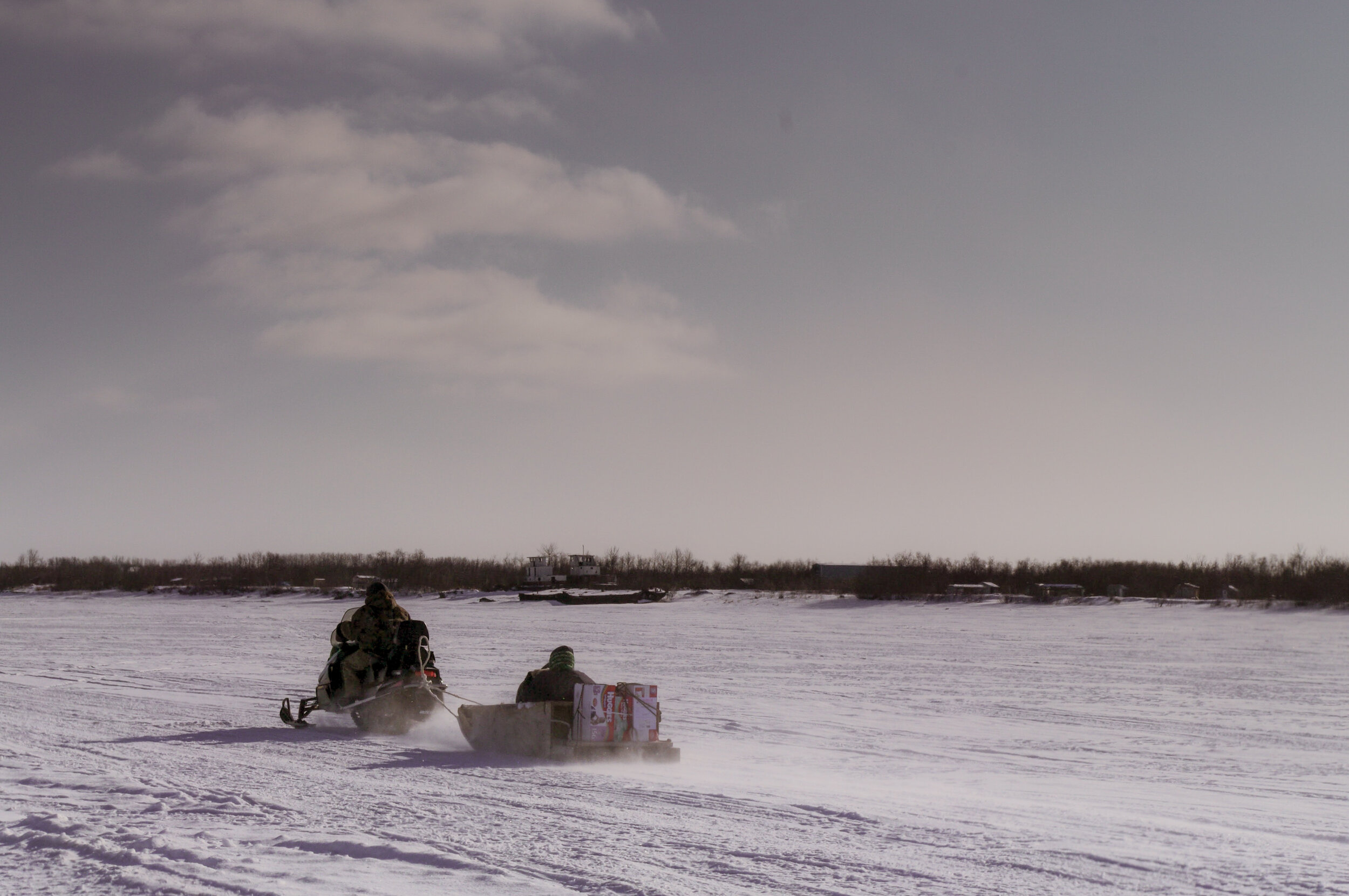
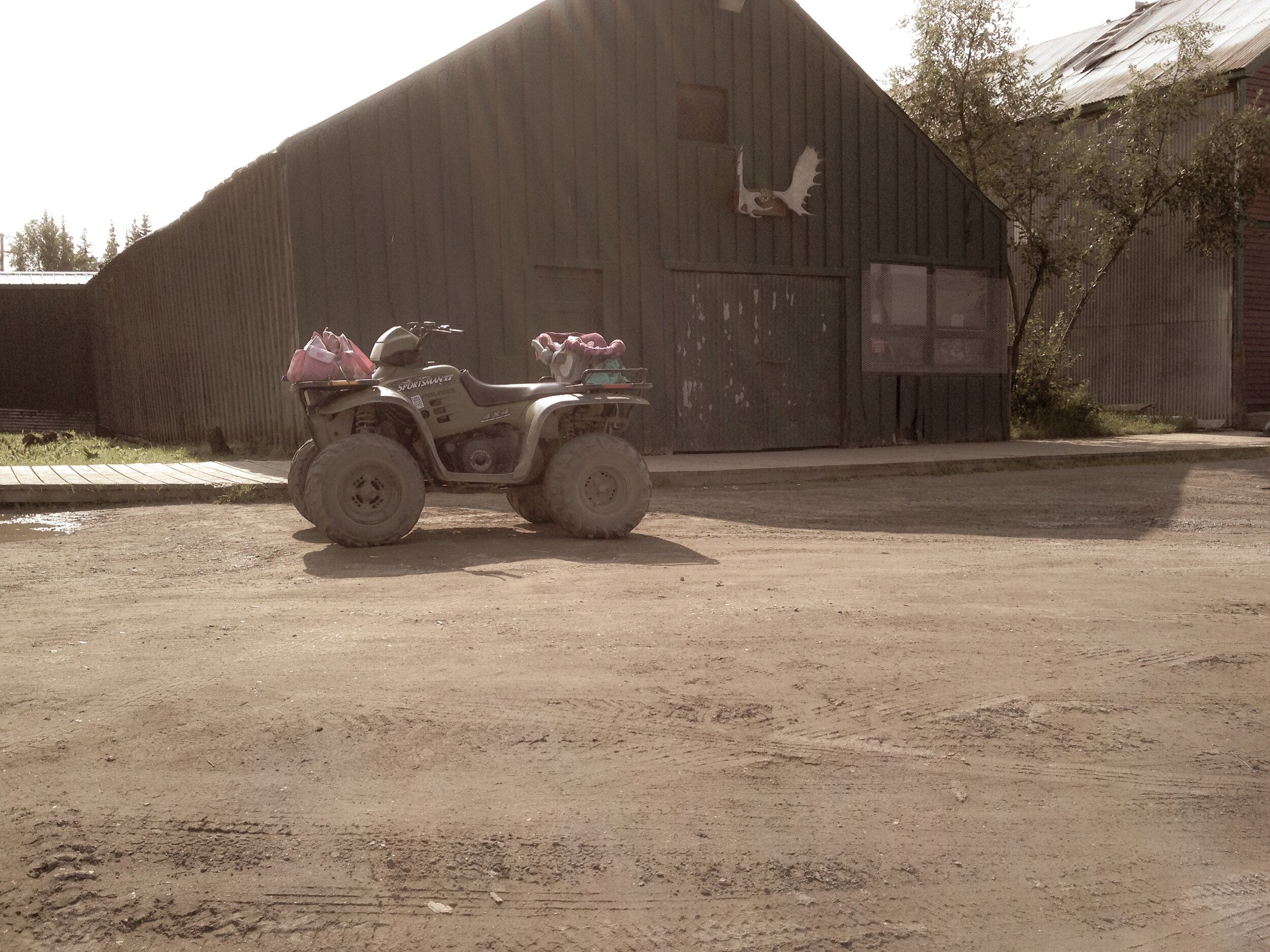
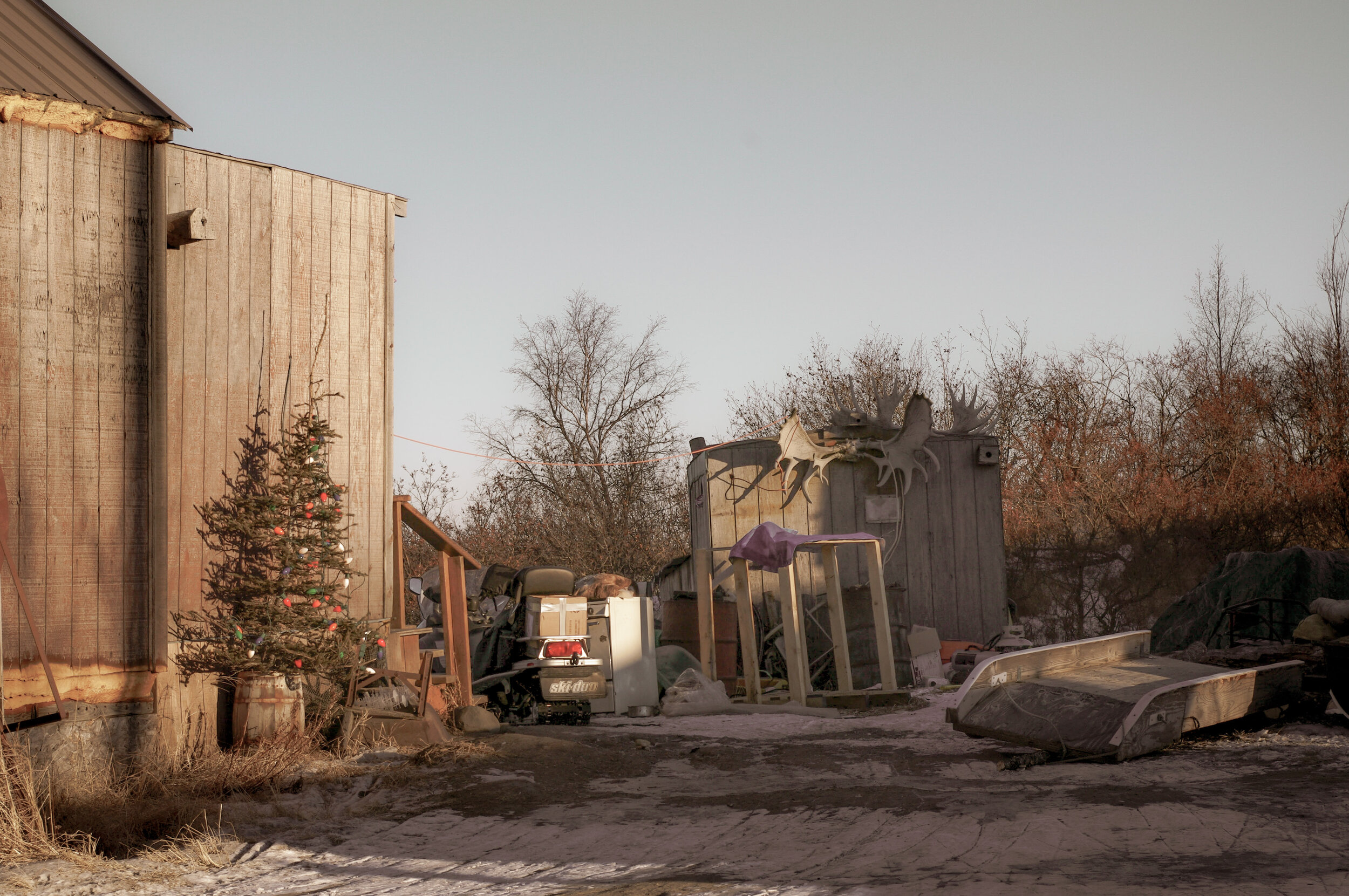
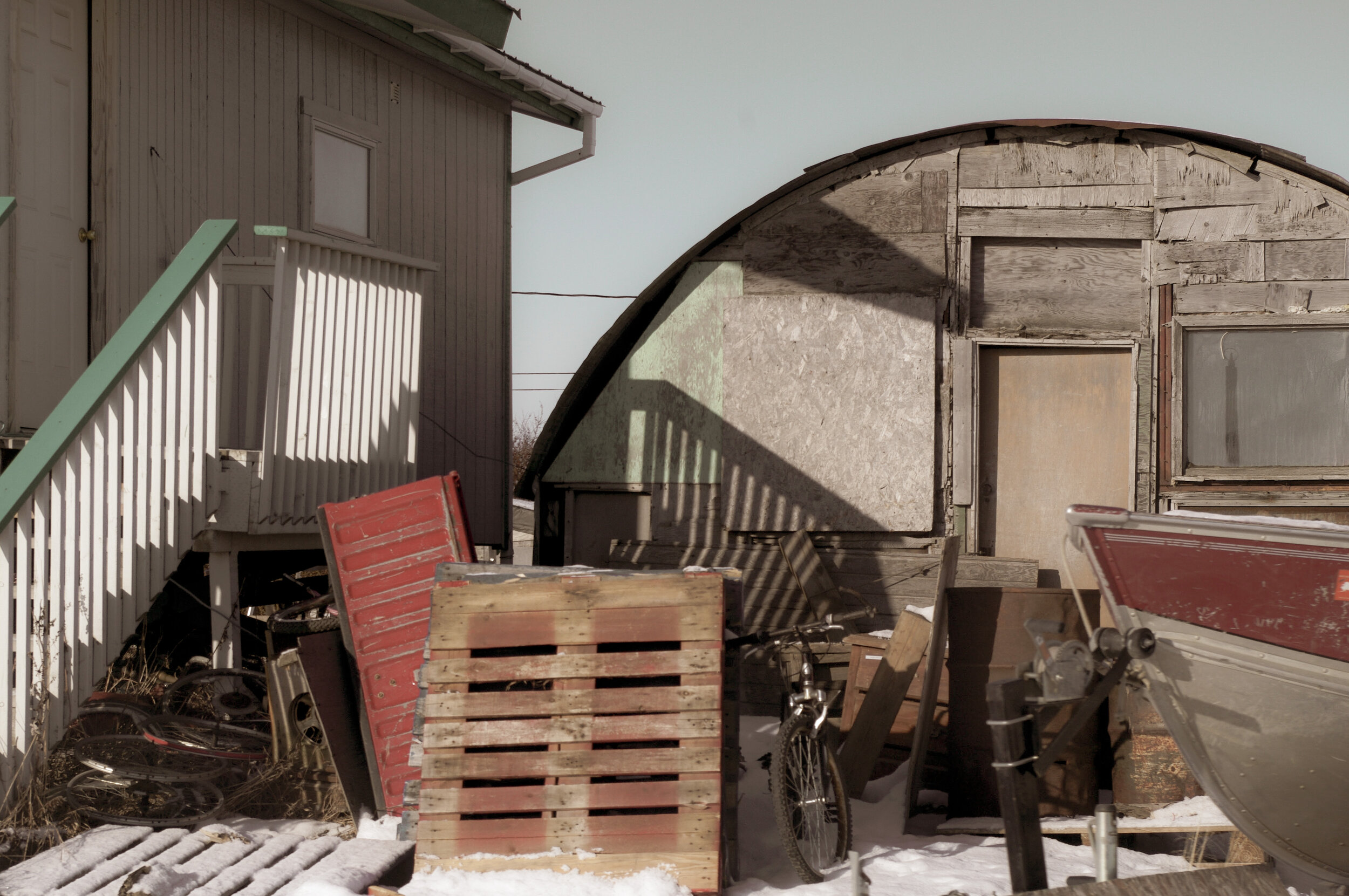
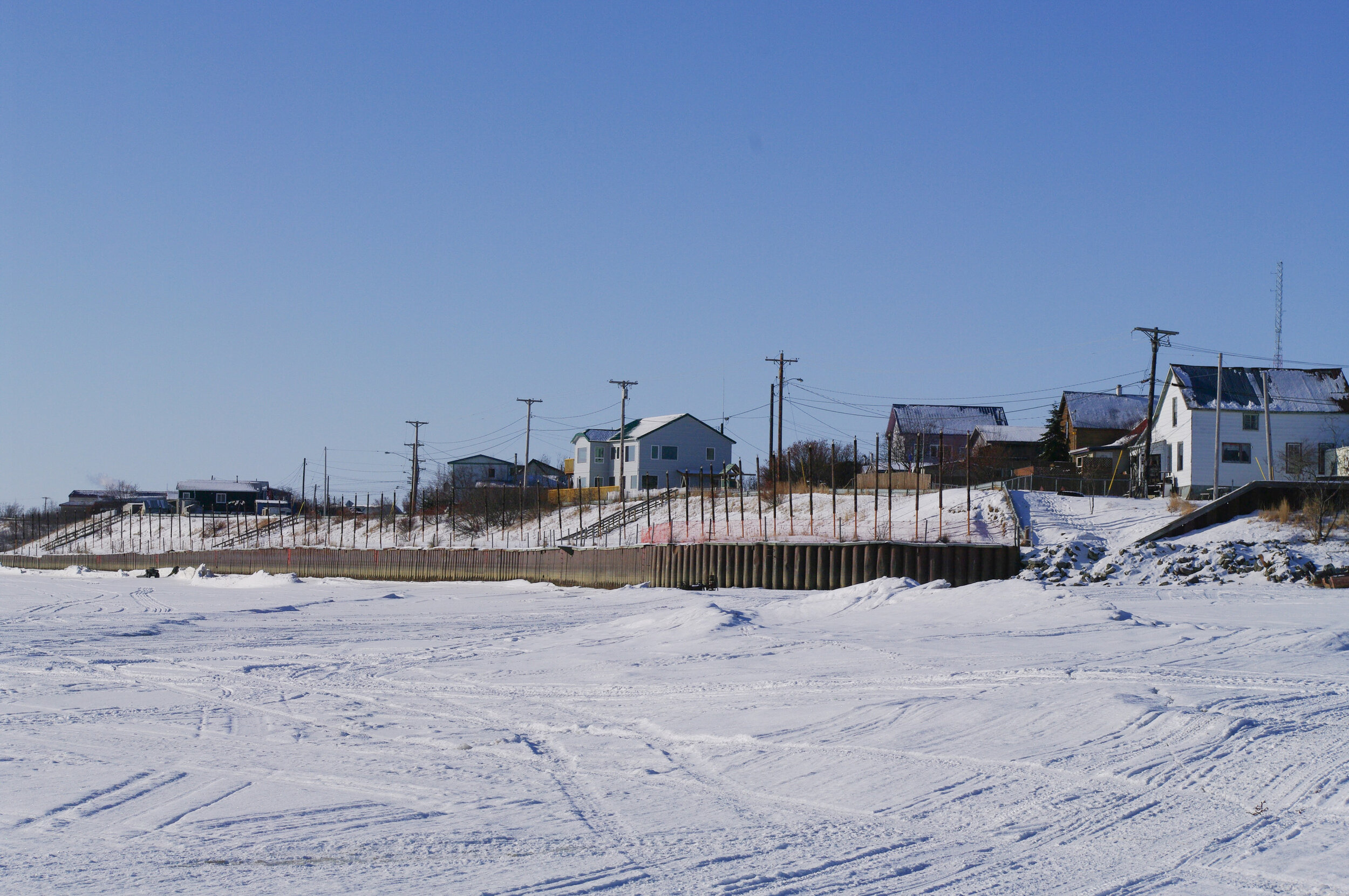
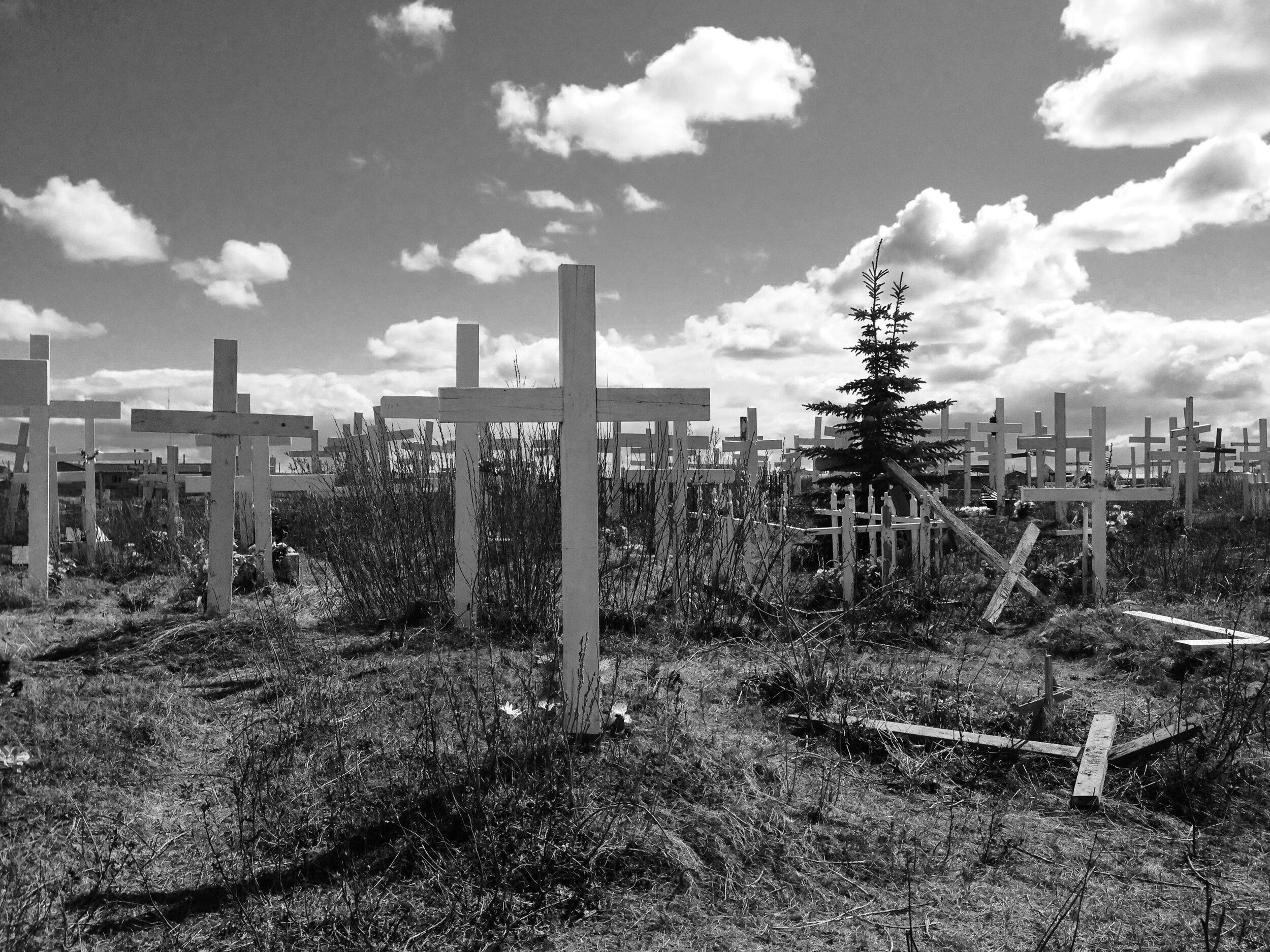
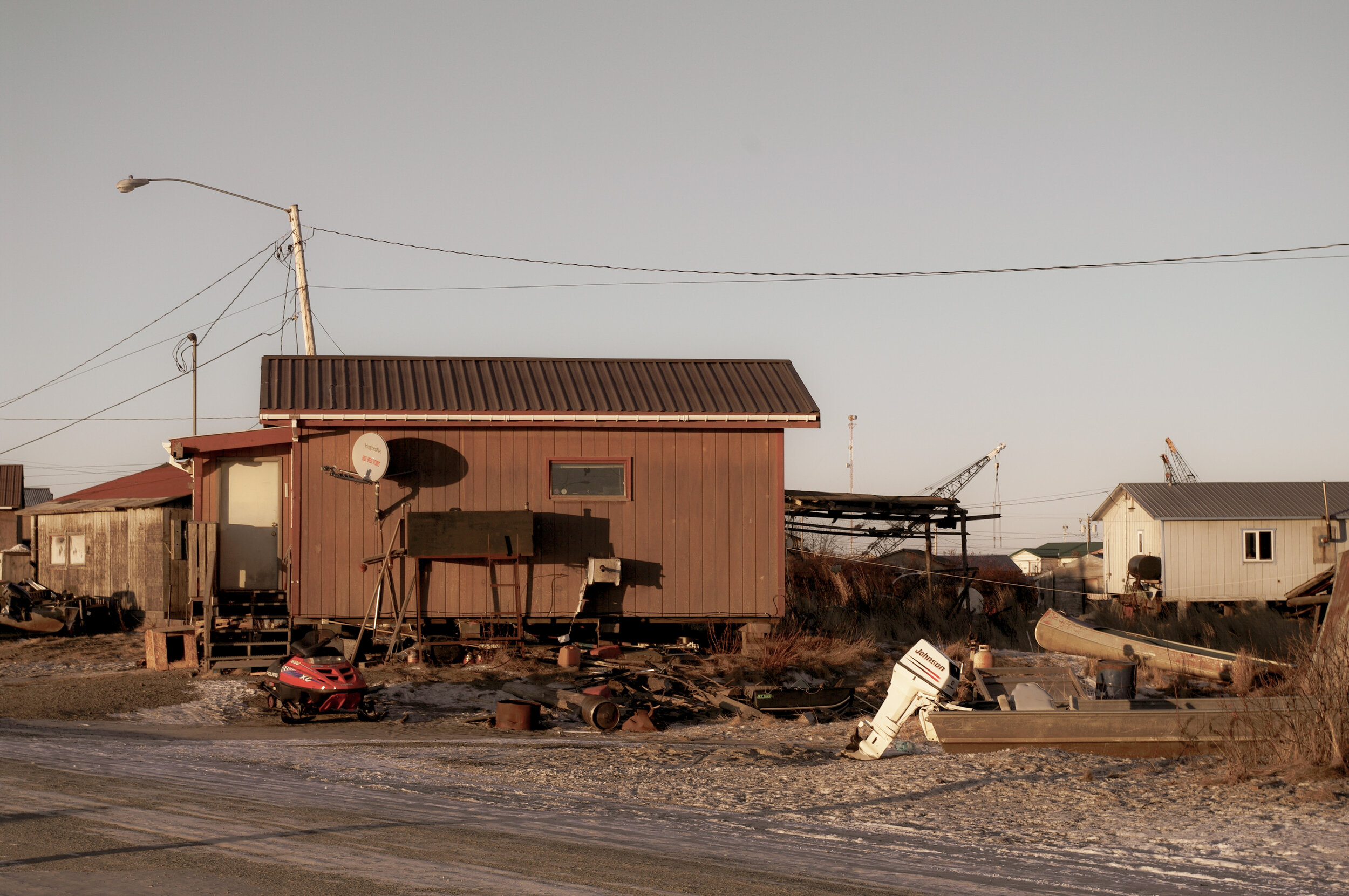
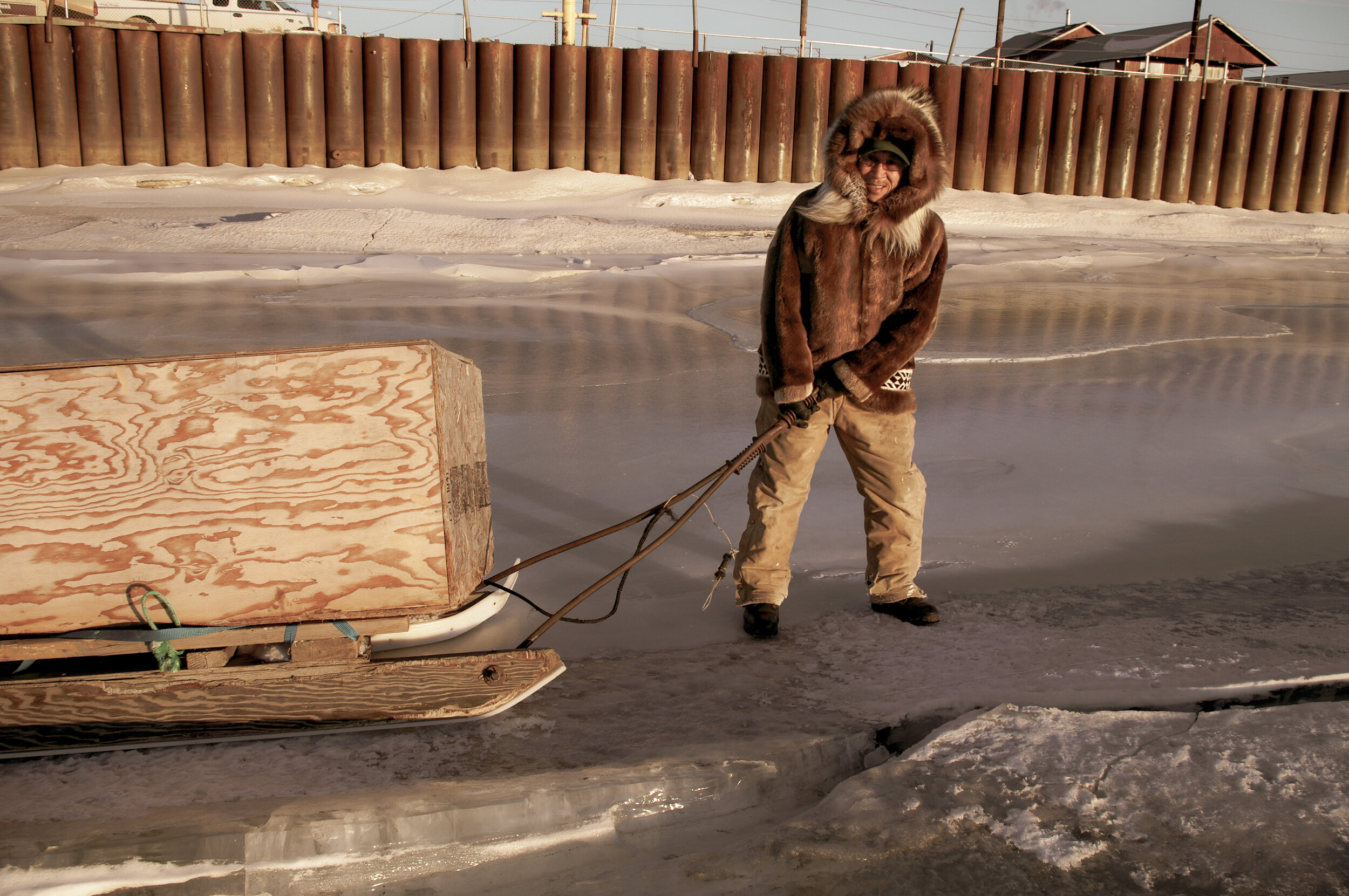
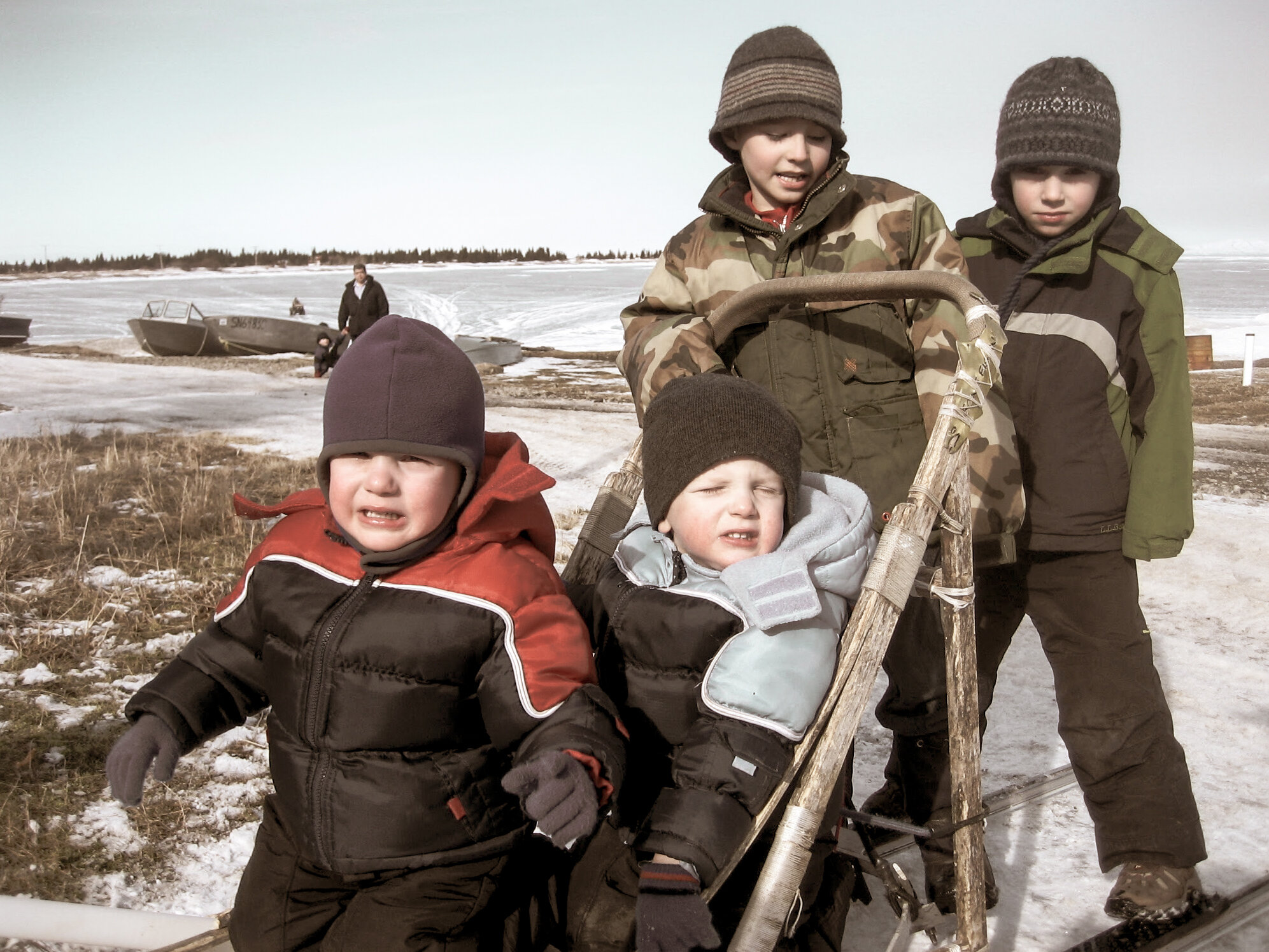
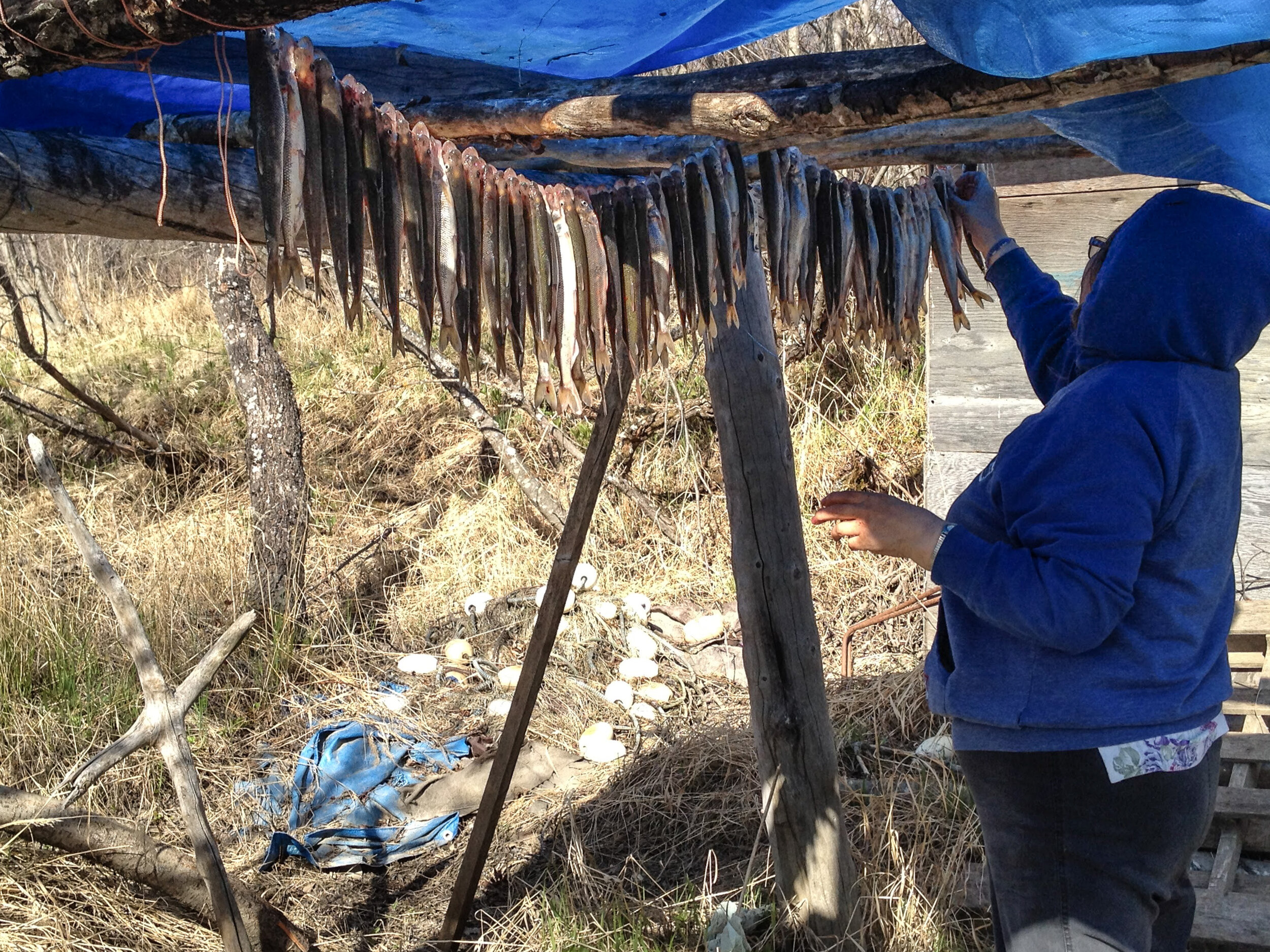
“I think of these teachings now and how they will never change. I think that whoever does not go to school, if he knows someone who is old, he should get knowledge from him. That person will give advice on how he should live, using the old teachings. These old teaching exist to this time, and they will always exist to the end of the world.”
—Yup’ik Elder Michael John, Newtok, from “My Earliest Memories”


